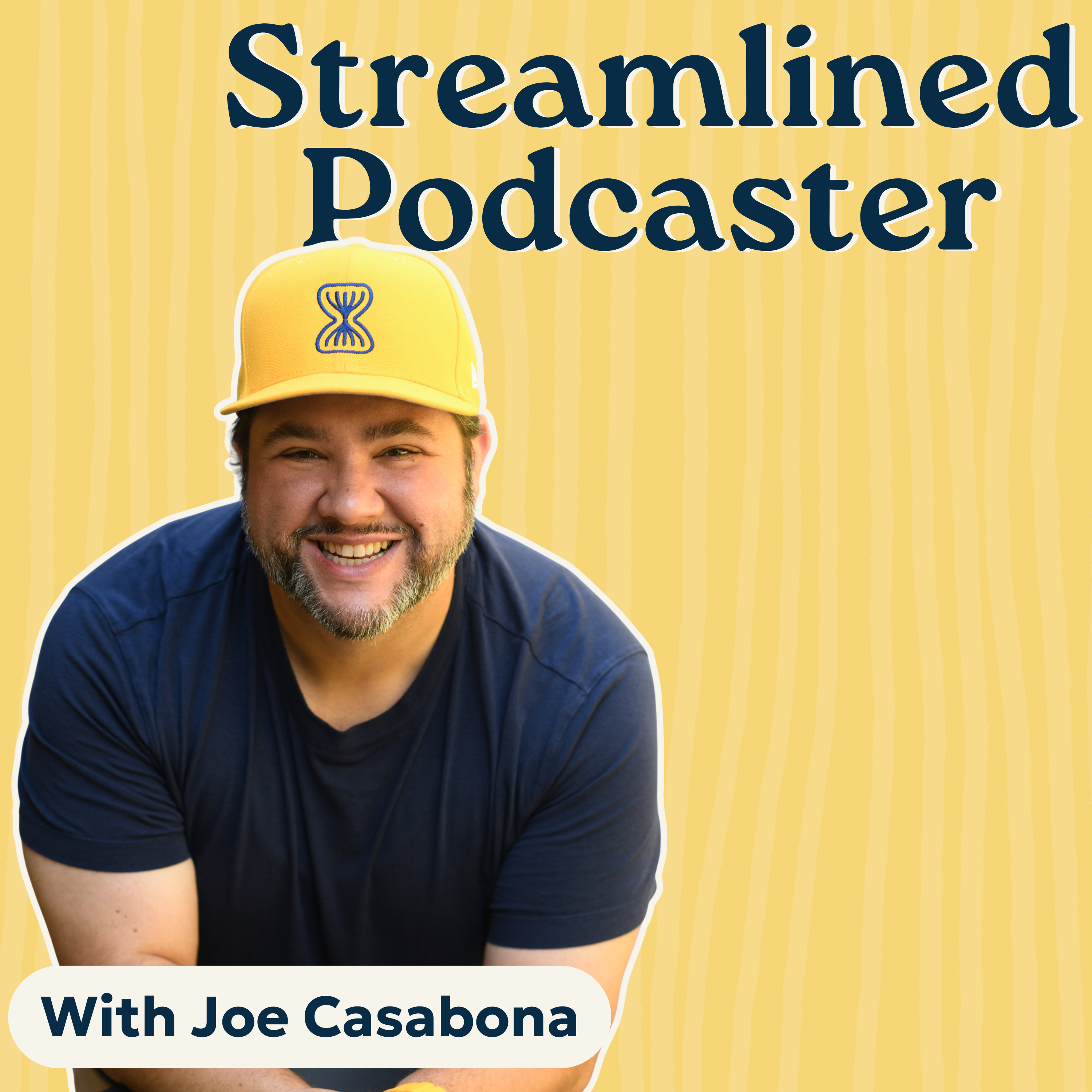
Podcasting Made Simple
Podcasting Made Simple is the premier podcast about podcasting! We’re here to help podcast guests and podcast hosts reach more listeners and grow their income so they can change more lives! Join Alex Sanfilippo and other podcasting industry experts as they share how you can level up on either side of the mic! (Show notes and resources: https://PodMatch.com/episodes)
Podcasting Made Simple
Getting Your Intended Message to Podcast Listeners | Doug Downs
Podcast guests often have a specific message they want to convey to listeners, but the host takes the conversation in a different direction, so the desired message does not reach the audience. There's a way to ensure that you can work in your intended message no matter where the conversation goes. In this episode, Doug Downs explains the framework for ensuring that you always get to share your main point while keeping the episode fluid. Get ready to start ensuring that your intended message is received by listeners!
MORE FROM THIS EPISODE: HTTPS://PODMATCH.COM/EP/313
Chapters
00:00 The Aha Moment: A Career Reflection
02:54 Transitioning from Journalism to Corporate Communications
05:49 The Importance of Narrative in Communication
09:13 Crafting a Message Map for Effective Communication
12:05 Maximizing Podcast Opportunities and Promotion
Takeaways
The 'aha moment' can redefine your career approach.
Transitioning from journalism to corporate communications is common.
Understanding the audience is crucial for effective messaging.
Narrative is key in any communication, especially in media.
Preparation is essential for successful podcast interviews.
A message map helps structure your communication effectively.
Key messages should align with audience interests.
Promoting podcast episodes enhances visibility and reach.
Podcast interviews are valuable opportunities for personal branding.
Anyone can learn the skills needed for effective communication.
MORE FROM THIS EPISODE: HTTPS://PODMATCH.COM/EP/313
You're listening to Podcasting Made Simple. My aha moment of my whole career came like really on just some idle Tuesday when I completely didn't expect it. It was something that came out of the blue and when it happened, I made like a mental footnote about it. I thought, that's interesting. You know, it just kind of followed it away, but it really didn't stand out to me as a big deal. It's only been over the years. As I thought about it more and more, realized, wow, what a moment that was and how it actually changed. That moment on reflection changed the way I've approached my entire career the rest of the way and probably my personality. I started as a broadcast journalist. started in radio, moved into TV because radio doesn't pay and spent 15 years in broadcast journalism. So that's where I learned how to broadcast, learned how to speak and just reach that point that a lot of journalists reach in their life where they cross over, it's called crossing over to the dark side, joined corporate communications. And in my case, I joined a big electricity utility company. And it was because they knew that they were facing a situation for the next year or so where as deregulation of electricity was taking place in that jurisdiction, they knew there were going to be a lot of media stories. They knew that there would be some negativity to them. needed a media person. to handle that. was the PR MO at the time that you hired a PR person to do those interviews. So that's kind of how I started. And my job was, it started with me doing these interviews just by phone mainly, or the ones that were in the main city, I'd do them there in the city. But our jurisdiction was actually about two million people across a jurisdiction roughly the size of Texas. So a lot of geography. And it morphed into, would travel. from community to community meeting with the newspaper editors and publishers, because at the time, and I'm dating myself, newspaper was really powerful. So I did those interviews and that morphed into, I had to meet with the local government representatives because when people are angry about anything, in this case, their electricity bill, they call their local government rep and they tell them off. And when they tell that local government rep off, The local government rep either calls you and tells you off as the company or more likely they complain in the media about you. So my job morphed into, would meet with those local government reps and try to explain this whole situation to them. And that morphed into, well, if you're so good at explaining it, why don't you meet with the, some of my constituents, the ones that are giving me the most grief meet with them one to one, and you try to explain the situation to them and make somebody happy. So that was my job for two years was just. traveling around that big area, meeting one-to-one with people, doing media interviews, meeting with government representatives and talking about what the situation was with the electricity industry and why bills were somewhat higher. And the aha moment came. I was meeting with a lady. She must have been in her 70s. She was a pensioner and her bills were higher. And the more I looked at her bill, there was nothing wrong with the bill. She was using more electricity. I think One of her grown children had moved back home and had started a welding operation, but I was never really able to drill down to that. she, had question after question. She was nice, but you know, she was on a pension. So she was upset and she had question after question. And in this particular meeting, for some reason at the end of the meeting, thought, wow, inside, thought I did a really good job there. I stuck to all my key messages. I really felt the answers, the way I rolled them out. They were, they were thoughtful. They had lots of great information in them. I felt like a champ at the end of that meeting. And she got up to leave and the next person who was coming in, I could overhear them. were around the corner. I couldn't see them, but I could hear them. He said to her, how did it go? And she said, that guy's got answers for everything. I was so deflated when I heard her say that. Nice lady, but I mean, facts were facts. What I thought was a very successful meeting, I had lost. I'd lost it badly. And I found that away as a mental note. But the more I thought about that, and as the years progressed and my career has always been spent in professional communications, I've always loved dissecting how human beings interact and communicate with one another. What I began to realize piece by piece was what I lost in that discussion. was the narrative. I had the answers. I answered well. I answered technically well. I think I was empathetic in the way I provided those answers, but I lost the narrative. When she was asked, what did he say? Or in this case, how did it go? The one sentence response was negative. That guy's got answers for everything. And I thought about that and thought about it. And as I progressed in my career, I came to realize that I missed a giant opportunity there. by missing the narrative, is really the key piece. Any presentation you ever give, any podcast interview you ever do, any media interview you ever do, any discussion you actually ever have with anyone, there is an opportunity to place a narrative. Now in most day-to-day discussions, I don't even want to place a narrative. I just really want to ask someone how they're doing. And the narrative, I suppose, is I'm your friend, I'm a colleague, and I want to get along with you. That's the narrative. But in a business transaction, like a podcast interview, like a media interview or presentation like this, there is a necessity to introduce a narrative. What is it you want people to say? That one line, that one sentence, what is it you want them to say at the end of your discussion or presentation? There's an opportunity. And to make the most of that opportunity, you definitely need to prepare. You can't just go in and wing it. And I love people that whether it's a podcast interview or any kind of interview that you hear some people say, I'm just going to, it's about me. So I'm just going to be me. I'm just going to be myself. I don't have to remember what I said. That's a huge missed opportunity there. I'm sure you are wonderful and you're terrific and you can, you can talk. You can fly by the seat of your pants, but you've missed an opportunity to place a lasting narrative to do this. And the tool that I want to introduce to you for this, for podcast interviews and how to be a great guest is a message map. The first step in developing a message map is good old examination of what your audiences are. Who are the key audiences that you want to reach? And a little hint, it is never general public ever. That's way too big. You have to niche down your audience. It could be, I want to reach single moms, could be, want to reach men who feel they need to up their game and in doing more work at home, anything, whatever your niche audience is, then what are the messages that they expect, want or need to hear from you? Then what are your goals or the messages that you want to get to them? Hopefully they're the same thing, but they may not be. People may be demanding you talk about XYZ. whereas you'd really rather talk about ABC. And a key message is the blend of those two things. If all you do is talk about ABC, and that's not what people want to hear, no one's listening. They haven't even heard you because they're waiting for you to talk about XYZ. And conversely, if all you talk about is XYZ, you've missed the opportunity because you really need people to understand ABC. A key message is your goals plus their interests. It's as simple as that. And a message map is this structure. At the top of the message map is a narrative. What is the feeling? What is the one sentence response that you want? When that lady left the room and the next person coming in said to her, how did it go? What was it I wanted her to say? What was the narrative? Well, probably what I really wanted her to say was, it's really complicated. I think everyone's doing the best they can, but it is complicated and I'm struggling to pay my bills. In all honesty, that's probably the best I could hope for. So my entire discussion should have been focused on that output. So outline what the narrative it is that you want. And it's almost always emotionally based. Then underneath that are three key messages. Sentence one, sentence two, Sentence 3. Each of these three supports the narrative. And if you find you have a key message, you'd really want to talk about this. But there's no way to fit that in to support the narrative. You either change your narrative or you don't use that key message. It's as simple as that to stay on track. So outline what your three key messages are. And one of mine in that case could have been how incredibly complicated electricity bills always have been and with a restructured or deregulated system have now become, because they were. There's so many different numbers, so many different charges. Underneath each key message are supporting facts. And this is where if you've got statistics or clever sound bites or clever quotes, famous quotes, anything like that, use those underneath to support each key message. So the structure you've got is kind of like a pyramid at the very pointy top end. The most important part is the narrative. Then just beneath that, the second tier is three key messages and they all support the very top. Then underneath each of those is three key messages. To do this properly, it's easy to throw ideas into a message map and you have several sentences. work with clients and we always start with two or three sentences in the narrative. It's incredibly hard to come down to a precious few words that you want in your narrative, but you can work for days, weeks to get to that point, but crunch it down so that each of these is really only a few words and it takes a lot of time. If it comes to you quickly, odds are you've either spent a lot of time on it already or you haven't done it quite right. Using the message map is a way to help you prepare for a podcast interview or any media interview. And at the same time, it gives you that flexibility to just be you because I don't want you to craft exact sentences. I'm not a lawyer. Lawyers like exact use this word sentences. I'm not like that. I'd rather have ideas or zones that we can talk about. And I think acknowledging how incredibly complicated electricity bills are is one of the key zones that I had to touch on. And if there has to be fault to place the fault at the hands of the industry, the electricity industry, it's up to the industry to make it simple or less difficult for people to understand. So a message map provides you that happy medium. It's got the planning. So you make the most of the opportunity and it's got the flexibility for you to just be the UIST you that you can be within that interview and stick to that message map. And it's not just, again, what you want to get out there. It is the marriage of what does your audience and sometimes that's via the interviewer. What does the interviewer want from you combined with what is it you want to get out there? It has to be a blend of the two podcast interview in 2024 is an amazing opportunity. Even the smaller podcasts, if they fit your niche, this is one of the main strategies, especially if you have your own podcast, you're looking to grow. This is now one of the key strategies being used by all podcast producers and growth gurus is to be on other podcasts to show your personality, which is your brand. And more people will want to hear from you. You'll have more followers on social media. You'll have more people listening to your podcast, more people familiar with what you do or who you are. A podcast interview is a huge opportunity, even if it's a small audience. And then the other little piece of advice I would offer is if you're a guest, please help that podcaster to promote that episode. Chances are, I know I've done this myself, where I've had guests on my podcast specifically because if they're a great interview, terrific, that's wonderful. But if they help me promote the episode, they're using their social media channels, they include us in the newsletter. I just had a guest on my podcast who before the release date wanted to start pumping out material. promoting that they're a guest on the podcast. I sent them all the material that I created. The more you promote, the more podcasters are going to want you to be on their podcast. I know I've seen people promoting that they were on the such and such podcast. And if that podcast is somehow not in competition, but it's related to my audience, chances are I'll reach out to that guest and say, hey, I'd love to have you on mine. So those are three key pieces for me. You have to prepare and proper preparation. One tool is a message map is understanding what the interviewer wants from you combined with what you want to get out there. Number two is to understand the opportunity that's in front of you with a podcast interview. And if it's not in your nature, just practice. Anyone can do it. Anyone. It is not a born skill. It's a learned skill. And lastly, to promote the podcast at the same time. For more episodes, please visit podmatch.com forward slash episodes. Thank you so much for listening.
Podcasts we love
Check out these other fine podcasts recommended by us, not an algorithm.
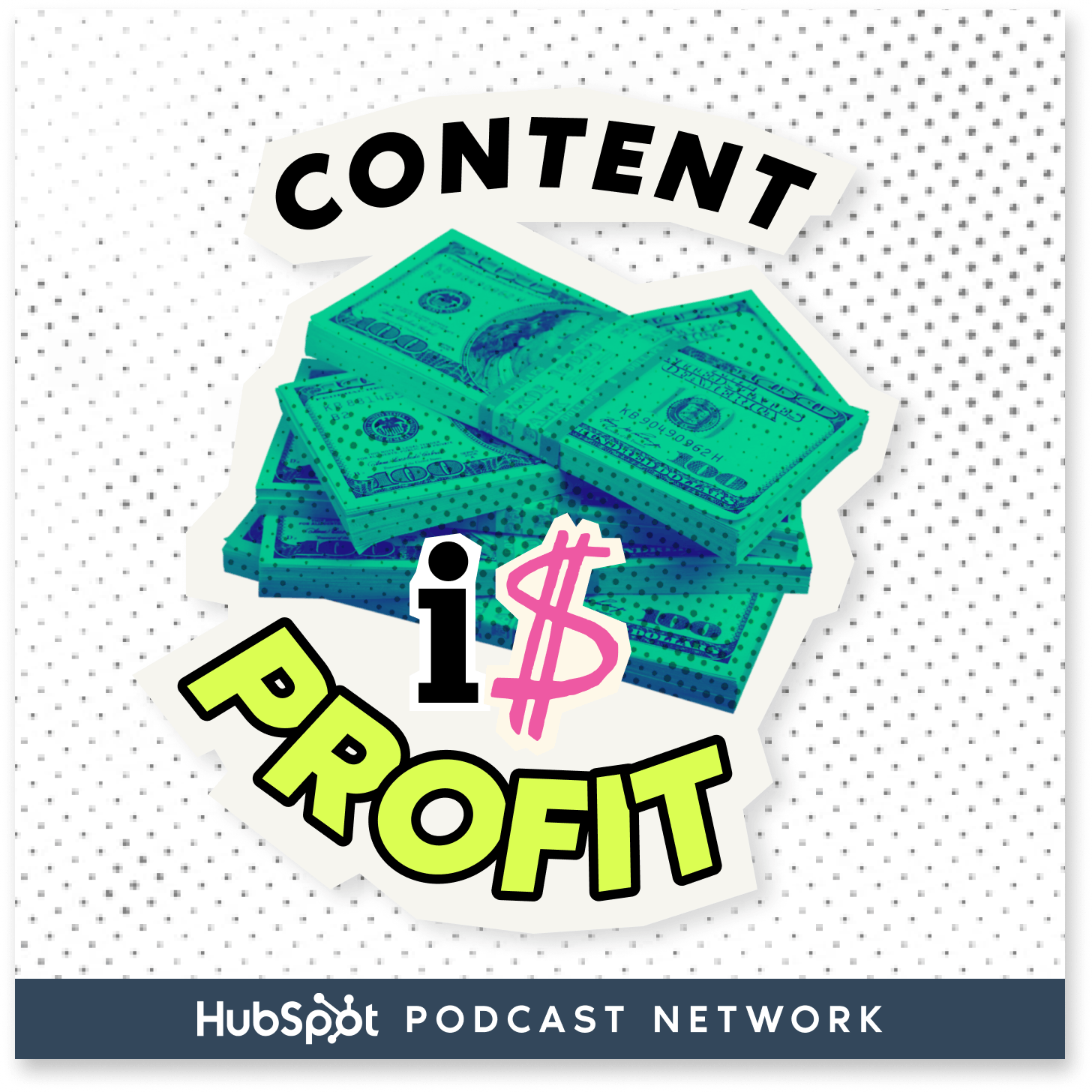
Content Is Profit
BIZBROS
Win The Content Game
Deirdre Tshien - CEO & co-founder of Capsho, AI-powered Content Marketer (the fastest way to repurpose and market your expert content)
Fastlane Founders and Legacy with Jason Barnard: Personal Branding, AI Strategies, and SEO Insights
Jason Barnard Entrepreneur and CEO of Kalicube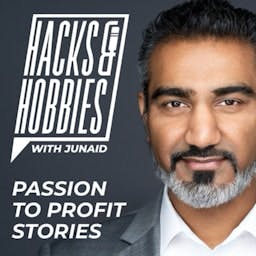
Hacks and Hobbies with Junaid Ahmed
Junaid Ahmed
I Have A Podcast by Vinnie Potestivo
Vinnie Potestivo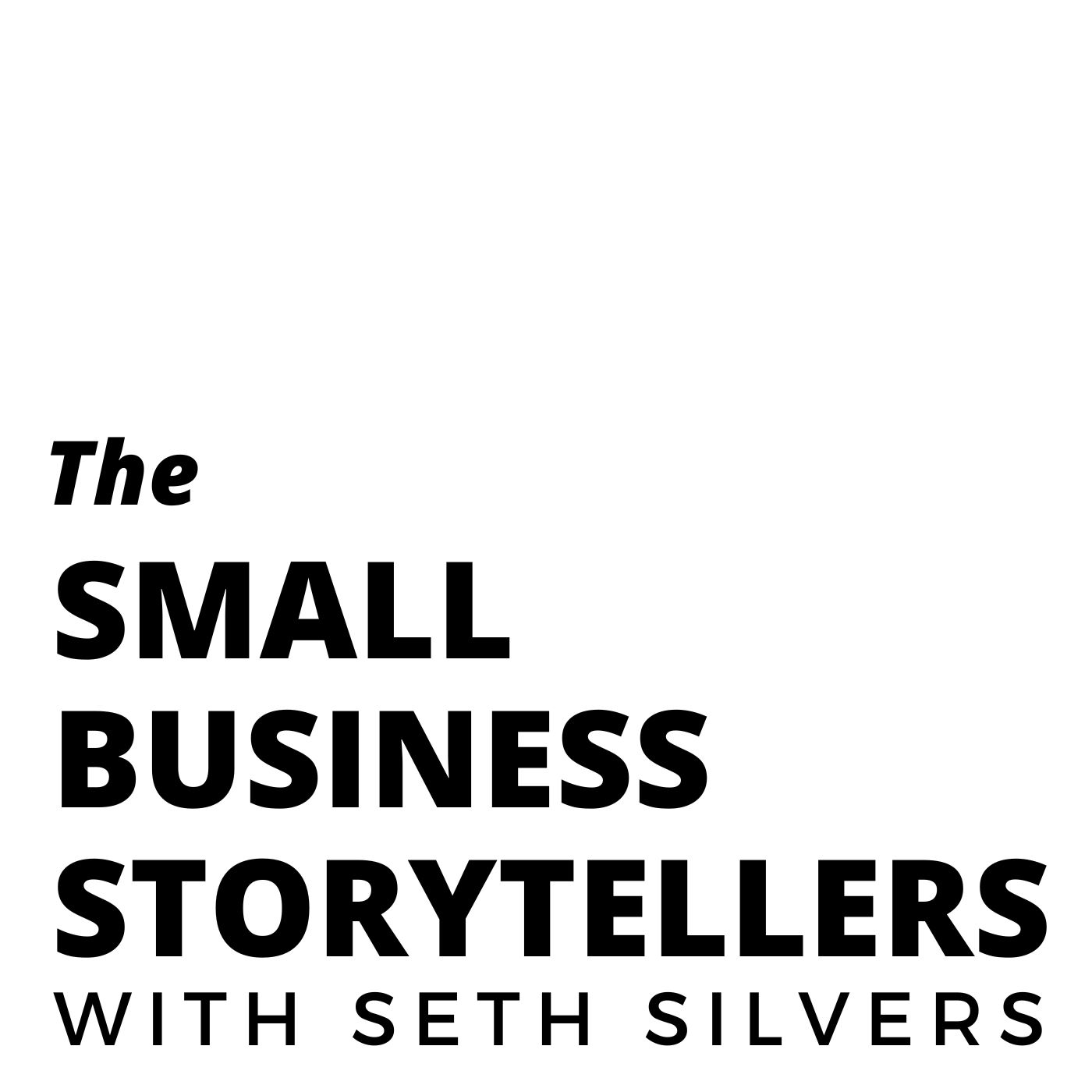
The Small Business Storytellers with Seth Silvers
Seth Silvers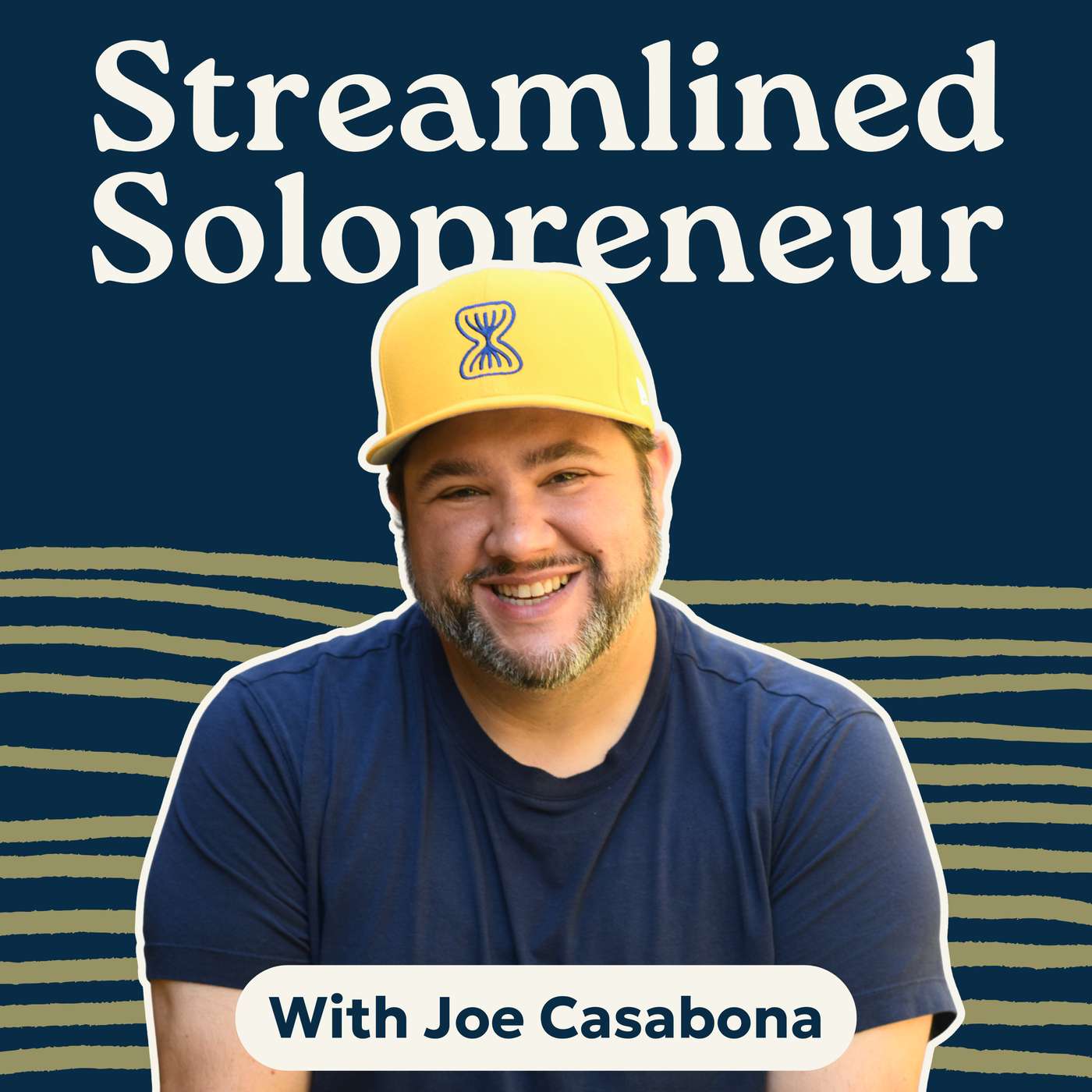
Streamlined Solopreneur: Tips to Help Small Business Owners Grow Without Burnout
Joe Casabona, Business Systems Coach
Insider Secrets to a Top 100 Podcast with Courtney Elmer | Podcasting Strategy for Business Growth
Courtney Elmer | PodLaunchHQ.comDo The Thing
Stacey Lauren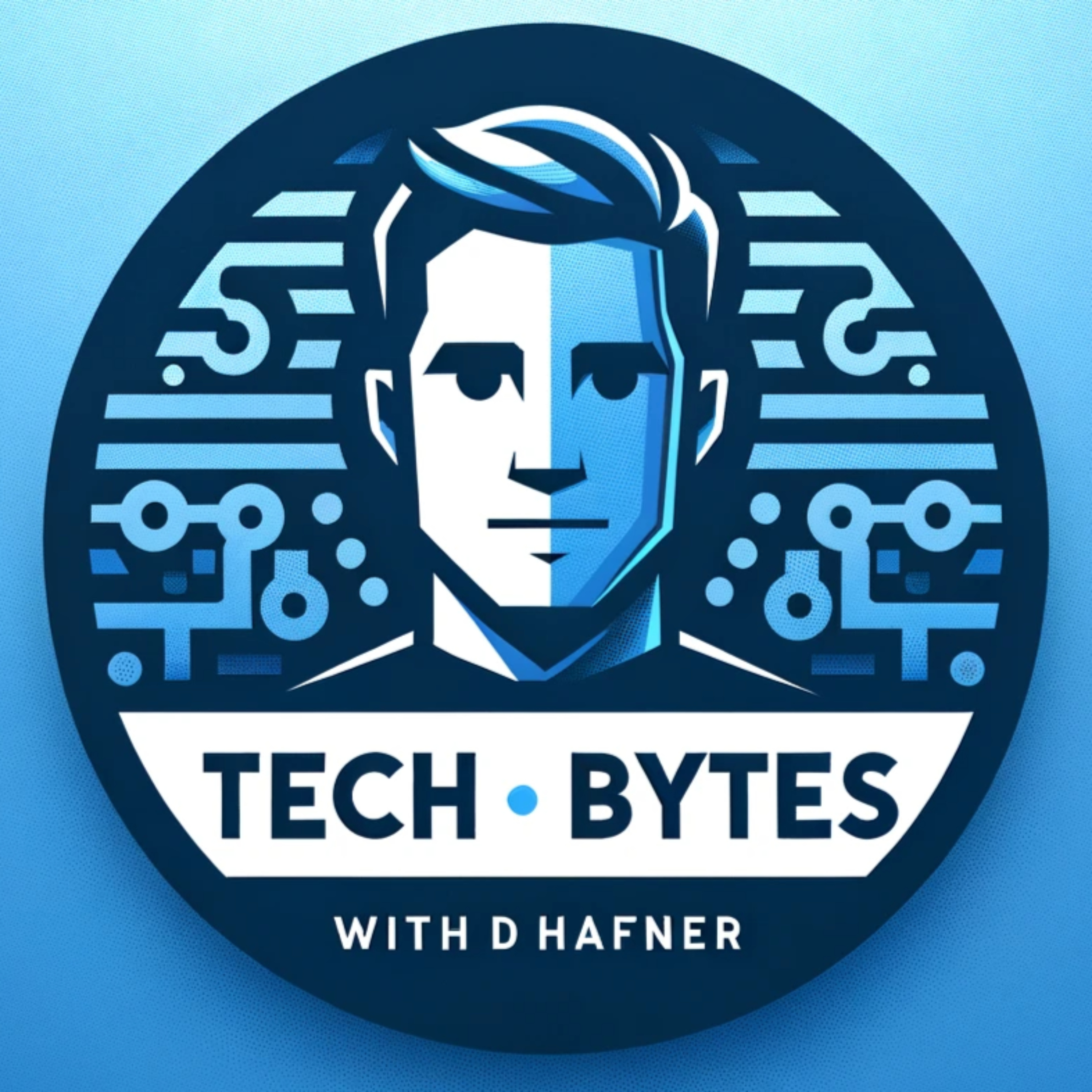
Tech Bytes - with Dan Hafner
Dan Hafner

